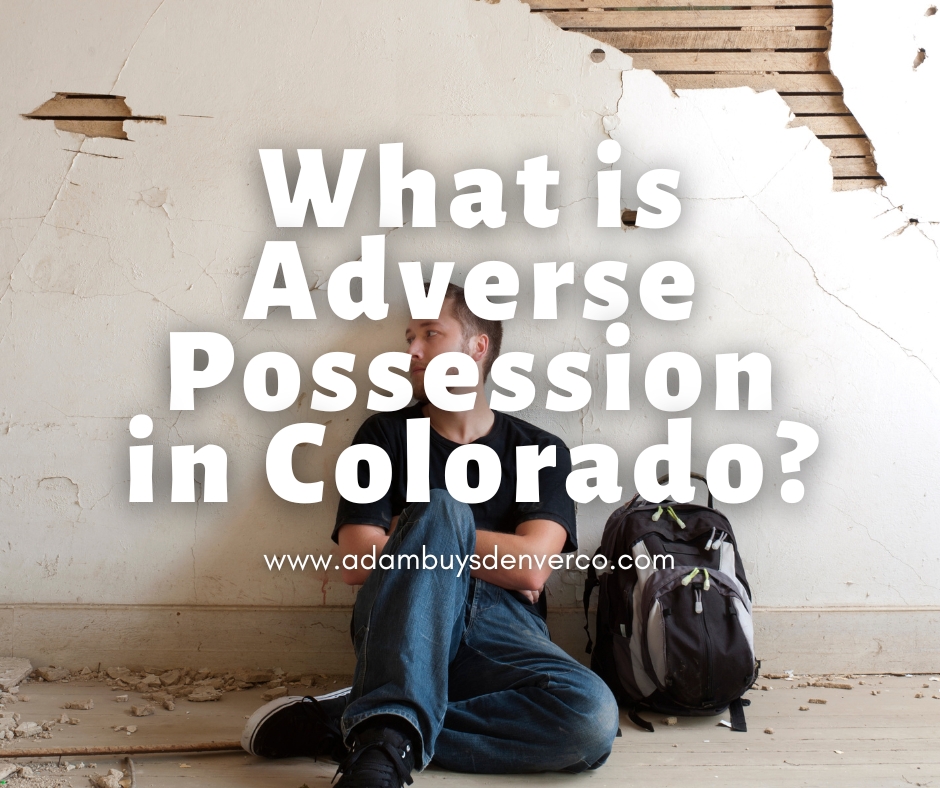
Speak to me directly!

Adverse possession is a legal concept that allows someone to gain ownership of a house or property through continuous and exclusive use for a certain period of time. In Colorado, the statute of limitations for adverse possession is eighteen years. This means that if someone uses a house openly and continuously for 18 years or more, and the true owner of the property does not take action to stop them, the adverse possessor may be able to claim ownership of the property. You must understand that there are specific requirements that must be met for adverse possession to be successful in Colorado.
The laws surrounding adverse possession vary by state. However, in general, in order for someone to claim adverse possession of a property, they must:
This is something we see every now and then with homeowners contacting us saying they have a squatter in their property. One of the first things we ask is the time frame this has been going on because some people do know what this is and will take advantage of a homeowner.
Adverse possession can have a significant impact on a homeowner. If someone is successful in claiming adverse possession of a house, the homeowner may lose ownership of that property and all the rights that come with it, such as the right to use, occupy, and sell the property.
The homeowner may also be responsible for paying any back taxes or other debts associated with the property. Additionally, if the property is a primary residence, the homeowner may be displaced and may have to find new housing.
Homeowners should be aware of the laws surrounding adverse possession in their state and to take steps to prevent it from happening, such as regularly inspecting and maintaining their property, and taking action if they suspect someone is trespassing or using their property without permission.
The vitality of consulting with a lawyer if you suspect that someone may be claiming adverse possession of your property should be top of mind.
There are several steps that a homeowner in Colorado can take to prevent and avoid adverse possession of their property:
This is a type of adverse possession that should truly concern real estate investors and landlords looking to buy distressed properties or houses with problem tenants. Color of title refers to an instrument that appears to be a legitimate claim of title to property but due to a title defect, cannot transfer or convey ownership. This especially happens and can happen if you didn’t pay title insurance to actually secure a clean title or perhaps a former owner thinks they still have a valid deed.
Disclaimer: This is for educational purposes and is not legal or financial advice for your situation.
Comments are closed.